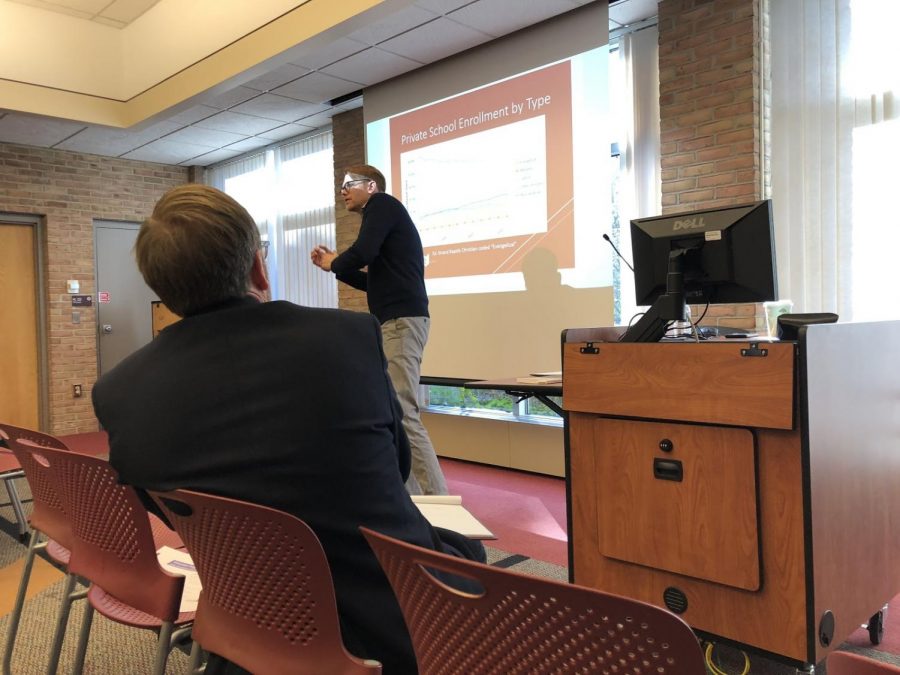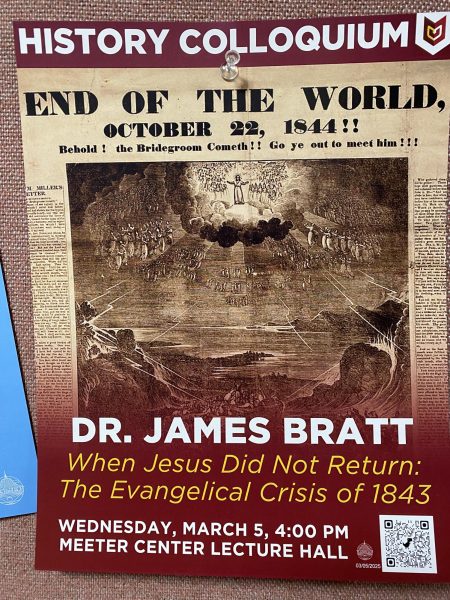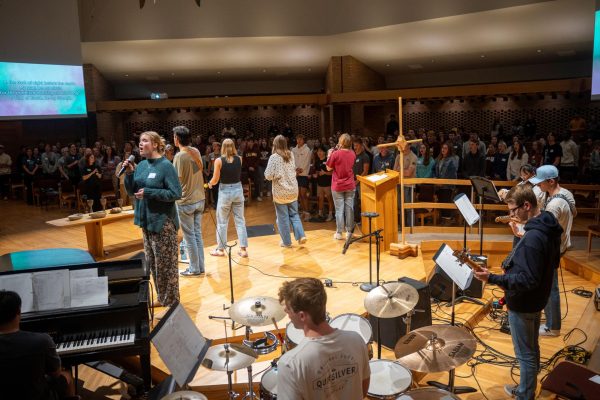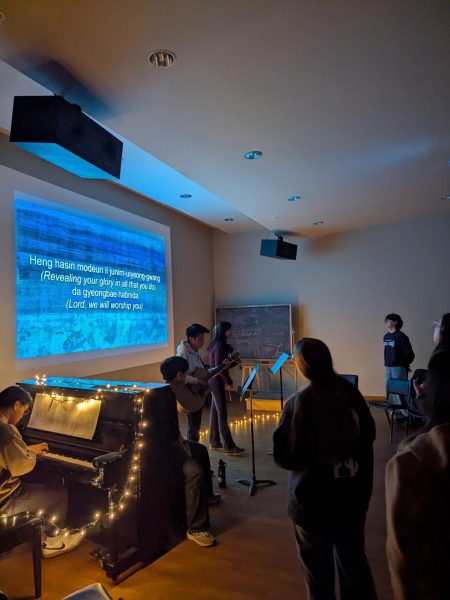School choice study reveals enrollment trends
Prof. Pelz reporting on his findings.
In an event organized by the education and political science departments last Thursday, Mikael L. Pelz spoke on his latest research project, entitled “Looking Within or Reaching Out? The Effects of Religion on Private School Enrollments in an Era of School Choice.” Pelz, an assistant political science professor at Calvin, and his co-author, political science professor and Calvin department chair, Kevin den Dulk, have spent the last three years collecting and analyzing data on private school enrollment. They had previously published their work in academic journals. Heavily attended by students from both departments, the event was the second in the year-long education department series.
Pelz explained, “We want to understand who goes to private school and why,” as he introduced his work. The research focused mainly on determining the effect that school choice programs have on a parent’s choice to enroll their child in public school. He continued, “Parents are consumers …[they] think about how these options might help them in terms of making their kids excel.”
By looking at state-level demographic data from 1989 to 2011 on the race and denomination of the families involved and the religious affiliations of the schools themselves, Pelz and den Dulk examined patterns of enrollment and the impact of voucher programs and tax cuts. They concluded by finding limited support for the theory of social identity — a parent’s desire to maintain a kind of religious identity by sending their child to a Christian private school. Meanwhile, they found broad support for what they titled the “secular goods” theory: the appeal of the unique benefits of a private religious education outside of religiosity, such as discipline or democratic involvement.
As for why they focused so much on religion as a factor, Pelz explained that it is because they believe that it plays such a large role. Pelz pointed out, “Over 80 percent of private schools are religious … Private schools have a broad basis of support.” According to the study, school choice policies have often aided that support.
Having concluded this project, Pelz already has several more on the horizon. Next, he will examine curriculum in charter schools. In a time where school choice is such a relevant topic, it is an area rich for exploration.







